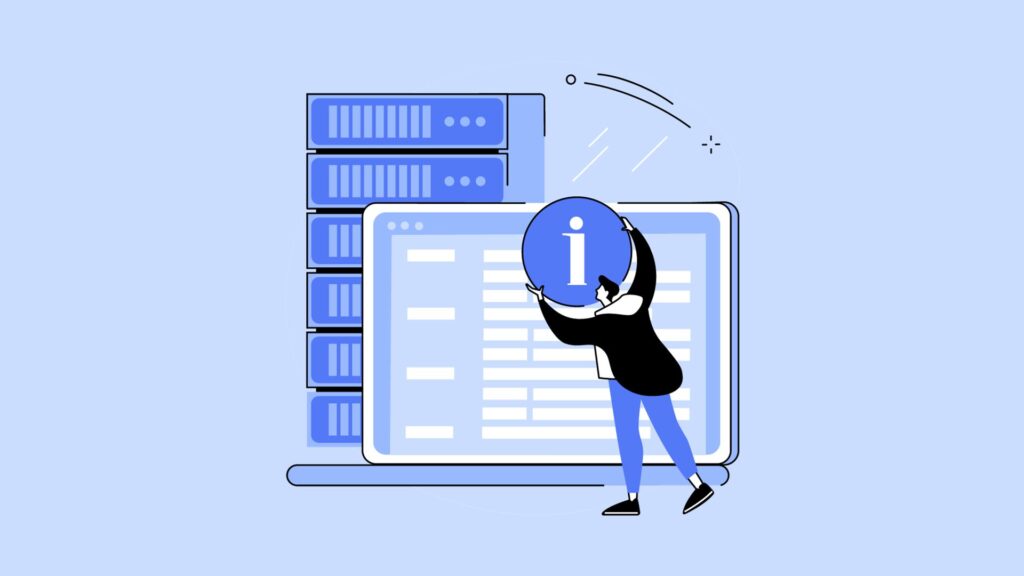Customer Support Management Systems (CSMS) have emerged as a powerful tool to bridge the gap between businesses and their target audience. But how can you ensure that your CSMS messages are truly hitting the mark? With an ocean of content vying for your audience’s attention, it can be a daunting task.
Fear not!
This article is here to provide you with valuable insights on assessing the reach of your CSMS messages. Get ready to equip yourself with proven strategies that will not only enhance your targeting but also keep you ahead of the curve.
Let’s make sure your messages resonate with your audience like never before!
What are CSMS Messages
CSMS stands for Customer Support Management Systems, a communication tool used by businesses to engage with their target audience. In essence, CSMS allows businesses to send out messages, updates, or alerts to their customers through various channels like email, SMS, push notifications, or in-app messages. These messages can be about a wide range of topics, including:

- Product updates: For example, a software company might use CSMS to inform customers about a new feature that’s been added to their application.
- Promotions and deals: A retail store could use CSMS to send out promotional codes or to notify customers about a sale.
- Customer support: If a customer has raised a support ticket, CSMS can be used to send them updates about the status of their request.
- Educational content: An online learning platform might use CSMS to send out tips and tricks or other educational content that can help users get more out of their service.
The goal of CSMS messages is not only to keep customers informed but also to build a stronger relationship with them by providing timely, relevant, and useful information. Using CSMS effectively can result in higher customer satisfaction, increased customer retention, and, ultimately, a more successful business.
Importance of CSMS messages
In today’s competitive business landscape, the importance of CSMS messages cannot be overstated. These communications not only help keep your customers informed but also play a vital role in building and maintaining strong customer relationships. Here are some reasons why CSMS messages are crucial:

- Enhanced Customer Engagement: CSMS messages provide businesses with a platform to engage with their customers on a regular basis. For example, sharing engaging content related to the user’s interests or providing tips on how to better utilize a service can keep customers engaged and foster stronger connections.
- Improved Customer Retention: Timely and relevant messages can significantly enhance customer experience, leading to improved customer retention. For instance, promptly informing customers about the progress of their support ticket or giving them a heads-up about upcoming maintenance can reduce frustration and build trust.
- Opportunities for Upselling and Cross-Selling: CSMS messages can be used strategically to promote additional products or services that a customer may find valuable. For example, a telecom company could inform customers about a new plan that provides more data at the same price, potentially leading to an upgrade.
- Better Customer Support: CSMS can be instrumental in providing efficient customer support. Quick, automated responses acknowledging a customer’s query or issue can provide immediate reassurance, while regular updates can keep customers informed about the resolution process.
- Brand Building: Consistent, valuable communication through CSMS messages can help build your brand image in the customer’s mind. By offering useful insights, exclusive deals, or even a simple birthday wish, companies can create a positive brand impression.
To unlock the full potential of CSMS messages, businesses should strategically plan, target, and customize their communications. This ensures effective and engaging CSMS interactions.
Seven effective CSMS messages for better user experience

- Personalized Recommendations: To enhance the user experience, businesses can leverage the power of personalization in their CSMS messages. For example, a streaming service could send personalized recommendations based on a customer’s viewing history, making the customer feel valued and understood.
- Use of Rich Media: Incorporating rich media like images, GIFs, or videos can make your CSMS messages more engaging and interactive. A boutique clothing store, for instance, could send a short video showcasing their latest collection.
- Timely Updates: Ensuring that your CSMS messages provide timely updates is crucial. For instance, a delivery service could send real-time updates about a customer’s package, from dispatch to estimated delivery time, enhancing their user experience.
- Exclusive Deals and Offers: One effective way to use CSMS messages is to provide exclusive deals or offers. A coffee shop could offer a limited-time discount to loyalty program members, thereby encouraging repeat visits and strengthening customer relationships.
- Educational Content: CSMS messages can also be used to share helpful, educational content with customers. For example, a personal finance app could share tips on saving money or investing wisely, adding value for the user beyond the basic functionalities of the app.
- Surveys and Feedback Requests: Businesses can use CSMS to solicit feedback, making customers feel that their input is valued. An online retailer, for instance, could send a short survey after purchase to gather insights about the shopping experience.
- Celebratory Messages: Occasions like birthdays or anniversaries can be an opportunity to connect with customers on a personal level. For example, a restaurant could send a special discount code to customers on their birthdays, creating a positive association with the brand.
Implementing these effective CSMS strategies can significantly enhance the user experience, leading to increased customer satisfaction and loyalty. Remember, the goal is to communicate with your customers in a way that adds value and strengthens your relationship, so always keep the customer’s needs and preferences in mind.
Customer success teams vs customer support teams
Customer success teams and customer support teams are two distinct entities within a company, each playing a critical role in maintaining customer relationships. Although their roles may seem similar, there are key differences that set them apart.

Customer Support Teams
Customer Support Teams primarily focus on addressing customer issues and queries. They are reactive, responding to concerns as they arise. Businesses rely on these teams to ensure that problems are resolved quickly and efficiently. Some of their responsibilities include:
- Troubleshooting: When a customer encounters a technical issue, it’s the customer support team’s role to help find a solution. For example, if someone is having trouble logging into their account, the support team will guide them through the procedure to reset their password.
- Answering Queries: Customer support teams handle all types of customer questions. For instance, a customer might ask about the specifics of a product or how to use a particular feature.
- Handling Complaints: If a customer is dissatisfied with a product or service, the customer support team is the first point of contact. They aim to address the complaint and find a resolution that leaves the customer satisfied.
Customer Success Teams
Here are some of their responsibilities:
- Guidance: Customer success teams guide how to make the most out of a product or service. For example, they might offer tutorials or webinars to educate the customers about various features.
- Upselling and Cross-Selling: By understanding the customer’s needs, the success team can suggest additional products or services that could add value. For example, if a customer is using a basic subscription, the success team might recommend upgrading to a premium plan for additional benefits.
- Customer Retention: One of the key roles of a customer success team is to ensure customer retention. They aim to prevent churn by maintaining a positive relationship and ensuring that the customer is satisfied with the product or service.
While customer support teams handle immediate issues and provide solutions, customer success teams focus on helping the customer utilize the product more effectively and ensuring long-term satisfaction. Both teams are integral to providing a positive customer experience, but they approach this goal from different angles.
Customer success managers’ soft skills and qualifications

Customer Success Managers (CSMs) play a vital role in ensuring that clients achieve their desired outcomes while using a company’s products or services. To perform this role effectively, CSMS must possess specific soft skills and qualifications.
Soft Skills
Soft skills are often intangible, but they can significantly impact a CSM’s ability to build strong relationships with customers. Some of the crucial soft skills include:
- Communication Skills: CSMs are the point of contact between the company and clients. They need exceptional verbal and written communication skills to explain product features, address concerns, and guide customers toward achieving their goals. For example, they may need to articulate complex technical jargon in simpler terms that a non-technical customer can understand.
- Empathy: Understanding & sharing the feelings of the customer is key to building a strong relationship. By empathizing with the customers’ challenges, CSMs can better meet their needs and expectations. It could involve understanding the frustrations of a customer dealing with a product glitch and offering supportive, efficient assistance to resolve the issue.
- Problem-Solving Skills: Things don’t always go as planned. In such cases, CSMs need the ability to think on their feet and come up with effective solutions. A great problem-solver can turn a disgruntled customer into a loyal one.
- Patience: Dealing with customers requires a lot of patience. Some clients may need extra time to understand product instructions, while others may express their frustration when things go wrong. A patient CSM can handle such situations calmly, ensuring the customer feels heard and supported.
Qualifications
While soft skills are crucial, so are the right qualifications. Some qualifications that are often required for a CSM role include:
- Degree in Business or Related Field: Having a formal education in business or a related discipline can provide a solid foundation for understanding business dynamics and customer relationship management.
- Experience in a Customer-Facing Role: Hands-on experience in dealing with customers can be invaluable. This experience may come from roles such as sales, customer service, or account management.
- Knowledge of Customer Relationship Management (CRM) Systems: CRM systems are commonly used tools in customer success. Familiarity with these systems is often a prerequisite for the role.
- Certifications: Certifications like Certified Customer Success Manager (CCSM) can add credibility and demonstrate a commitment to the profession.

Combining these soft skills and qualifications, a CSM can effectively ensure customer satisfaction, drive product adoption, and, ultimately, contribute to the company’s success.
13 Key Responsibilities of a Customer Success Team in SaaS Companies
The following are the 13 key responsibilities of a Customer Success Team in SaaS companies:

- Product Adoption: The team assists customers in understanding and using the product optimally. It could involve conducting webinars or tutorials to educate customers about the product’s features.
- Onboarding: They guide new customers through the initial setup and use of the product, ensuring a smooth and hassle-free onboarding experience.
- Training: The team provides ongoing training sessions for customers to keep them updated on new features or updates in the existing product line.
- Account Management: They manage customer accounts, keeping track of their usage patterns, preferences, and feedback to provide personalized support.
- Upselling and Cross-Selling: By understanding the customer’s needs and usage patterns, the team can recommend additional products, features, or upgrades that would add value to the customer’s experience.
- Customer Retention: The team strives to ensure customer satisfaction and loyalty, which in turn leads to customer retention. They aim to forge strong relationships with the customers and address any issues promptly and effectively.
- Feedback Collection: They collect customer feedback, which plays a crucial role in improving the product and aligning it with customer needs and expectations.
- Troubleshooting: The team assists customers in resolving any issues they may encounter while using the product. It could range from minor technical glitches to more complex system-related issues.
- Renewals: They manage the renewal process for subscription-based SaaS products, making it seamless and convenient for the customers.
- Advocacy: The team works to turn satisfied customers into brand advocates who can provide positive reviews and referrals, thereby attracting new customers.
- Reporting and Analytics: They track and analyze customer data to gain insights into customer behavior and preferences, which can be used to improve the product and customer service.
- Communication: The team maintains regular communication with customers through various channels like email, phone, social media, etc., keeping them informed and engaged.
- Escalation Management: They handle escalated issues or complaints, ensuring they are resolved promptly and to the customer’s satisfaction.
By fulfilling these responsibilities, a Customer Success Team in SaaS companies can significantly enhance customer experience, promoting customer satisfaction and loyalty and ultimately contributing to the company’s growth and success.
How Onboardsaas can help Customer Success Managers increase Customer Satisfaction and Drive Success
Onboardsaas is designed to streamline customer success operations and pave the way for enhanced customer satisfaction and loyalty. Here are several ways in which Onboardsaas can assist Customer Success Managers (CSMs) in achieving their goals:
- Intuitive Onboarding: With a user-friendly interface, Onboardsaas simplifies the onboarding process. It enables CSMs to provide step-by-step guidance to new customers, making the initial setup and use of the product a breeze. It positively impacts the early customer experience, setting the stage for long-term customer satisfaction and retention.
- Automated Workflows: Onboardsaas.com offers automation capabilities that can streamline various tasks. For instance, CSMs can automate training schedules, follow-up emails, and other routine tasks, freeing up time for more strategic endeavors. It leads to greater efficiency, allowing CSMs to manage their time better and focus on delivering superior customer service.
- Data-Driven Insights: With powerful analytics, Onboardsaas equips CSMs with insightful data about customer behavior, usage patterns, and preferences. These insights can inform strategies to enhance the customer experience, tailor product recommendations, and identify potential opportunities for upselling or cross-selling.
- Proactive Issue Management: Onboardsaas.com also helps in identifying and resolving issues before they escalate. Monitoring product usage can flag potential problems and enable CSMs to provide timely assistance, preventing user frustration and ensuring a smooth user experience.
- Enhanced Communication: The platform supports multi-channel communication, allowing CSMs to stay connected with customers through their preferred channels. Regular updates, personalized messages, and prompt responses can strengthen the customer-CSM relationship, boost customer engagement, and contribute to customer satisfaction.
- Customer Feedback: Onboardsaas.com facilitates easy collection and analysis of customer feedback. Understanding customer sentiments and acting on their suggestions can significantly improve product offerings and customer service, leading to increased customer satisfaction and loyalty.

CSMs can leverage Onboardsaas to deliver exceptional customer experiences, foster loyalty, and drive business success.
Conclusion
In today’s fiercely competitive SaaS market, crafting an outstanding customer experience is the key to business triumph. Enter the dedicated Customer Success Team, the unsung heroes who make it all possible. Armed with proactive support, personalized assistance, and invaluable insights, they pave the way for customer delight.
But wait, there’s more!
Equip them with the ultimate tool: Onboardsaas.
With this game-changer, CSMs can effortlessly navigate the customer journey, boosting satisfaction and loyalty. It’s time to prioritize customer success, forge an unbreakable bond with your clientele, and fuel sustainable growth.
Ready to take the leap?
Invest in your Customer Success Team, empower them with the right resources, and let Onboardsaas.com be your trusted ally on this exhilarating journey to SaaS stardom. Start your free trial today!

10+ years experience in Marketing and Operations

Thank you for your sharing. I am worried that I lack creative ideas. It is your article that makes me full of hope. Thank you. But, I have a question, can you help me?
Thanks for sharing. I read many of your blog posts, cool, your blog is very good.